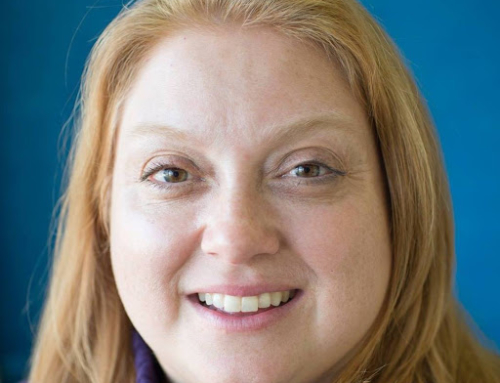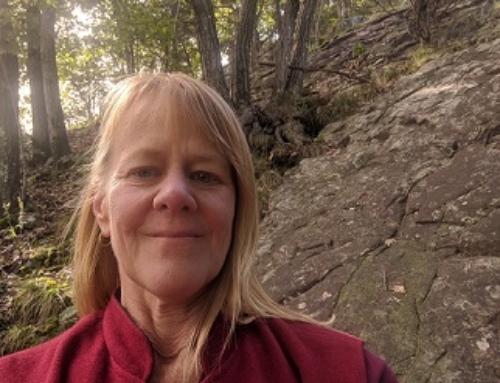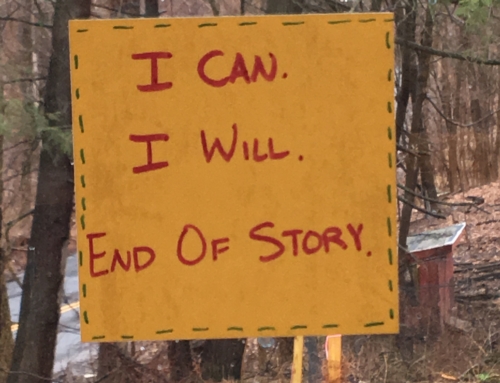
Melissa Spear is Executive Director at Common Ground.
July 2012 | Reflections from Melissa Spear, Executive Director
I am sitting at home this morning as I write this, looking out at the Taj Majal (as my husband calls it) we built to “protect” our blueberries from those vicious Cat Birds and Blue Jays. I have been a birder since college and am amazed (and somewhat sheepish) about how quickly the birds become the enemy once they start going after my blueberries. It is a catch 22 however because now that the Taj Majal has been erected I feel guilty for being so selfish. Next year I am thinking I may leave one or two bushes out for the critters to enjoy. Isn’t sharing part of what sustainable agriculture is about?
My obsession with whether and how to share my blueberries is just the tip of the iceberg.Somewhat unexpectedly, “Food” has come to play a significant role in my life. I have inevitably taken the time to put a garden in where ever I have settled. This last garden was started about 6 years ago now. Each year, as we make improvements (gardens are never done) and plant, my husband does the math in his head. According to him (and he is an engineer), once you calculate the cost of seeds, seedlings, soil amendments, labor, and other sundry materials it seems we might grow the most expensive vegetables on the planet. But we both know that his crude calculations neglect to account for all of the benefits we enjoy as a result of growing our own food “ knowing that the food is free of pesticides and herbicides; knowing that it has been produced sustainably and that we have participated that much less in supporting an unsustainable agro-industrial complex; the pleasure we experience when we walk down to the garden and pick lettuce, or peas, or chard, or kale, or green beans for dinner; the quality of the food the garden yields, its extraordinary flavor; the pride and joy we feel when we see what our labors have produced; and knowing that our kids are absorbing at least some of these lessons by osmosis (some of them even occasionally help weed).
While I love my garden, it is really just a cute little vegetable patch when compared to our gardens at Common Ground. At Common Ground, we produce several tons of food each year, yet many of the same themes are at play on our urban farm “affordability, sustainability, health, pleasure, joy, and learning“ lots of learning. Unlike my garden at home, at Common Ground our work growing food is rooted in our mission: to cultivate habits of healthy living and sustainable environmental practice within a diverse community of children, young people, and adults. As a result, we are constantly seeking ways to extend the impact of our farm and food production beyond the borders of our site, and beyond our immediate community. How much can we grow and what is the best way to get the food produced on our farm out into surrounding communities that don’t have easy access to affordable, healthy food? How can the farm be used to help people understand the social, economic, environmental and health impacts of their food choices? How can we maximize the opportunities available for people to learn about food and sustainable agriculture, to enjoy the beauty of the farm, to experience the pleasure of seeing where your food comes from and how it is produced? How can we make the farm relevant to the urban communities that we serve?
As the destructive impacts of an industrialized food economy are better documented and understood, and as the “food movement” matures, these questions have gained in prominence within Common Ground. This has led our high school students to take on important work around food. As members of New Haven’s Food Policy Council our students have contributed to a soon to be released “Food Action Plan” that will propose ways to focus New Haven’s local food economy on healthy, affordable, locally and sustainably produced food. Our students have also recently founded Fresh Food Heroes, an initiative to get food from our farm into communities that lack easy access to fresh produce starting with Ribicoff, an elderly housing complex just down the street from us. It has led us to a partnership with Cityseed to launch a mobile market that will bring fresh produce directly into neighborhoods with limited access to healthy food. It has motivated us to invest in starting a School Garden Resource Center as part of a coalition of organizations and individuals interested in putting a “garden in every school.” It has also led us to participate in two broader movements – one focused on the state of Connecticut and the other on the New England region – aimed at building a more just, resilient, sustainable and healthy food system. Both of these movements are in the early stages of their development, and I look forward to talking about them more over the next year.
In the meantime, I can see a couple of squirrels skulking around the Taj Majal looking for a way in to raid the blue berry patch! I have to admit, I have less sympathy for squirrels than I do for Cat Birds. Time to go chase them off!
Your thoughts and comments are always welcome and appreciated. Until next time.




Leave A Comment